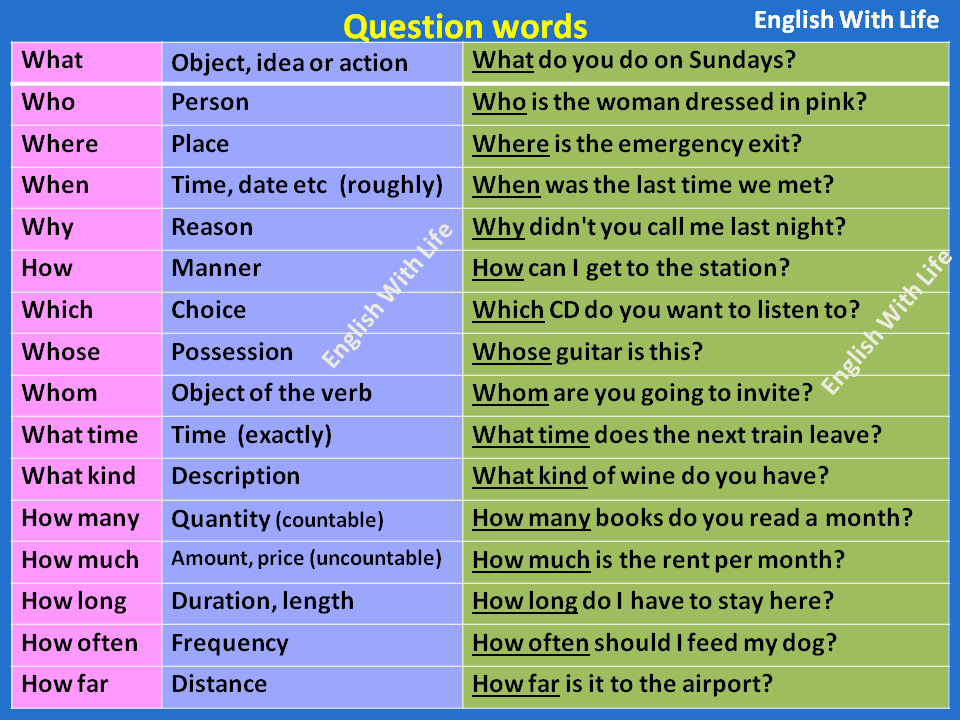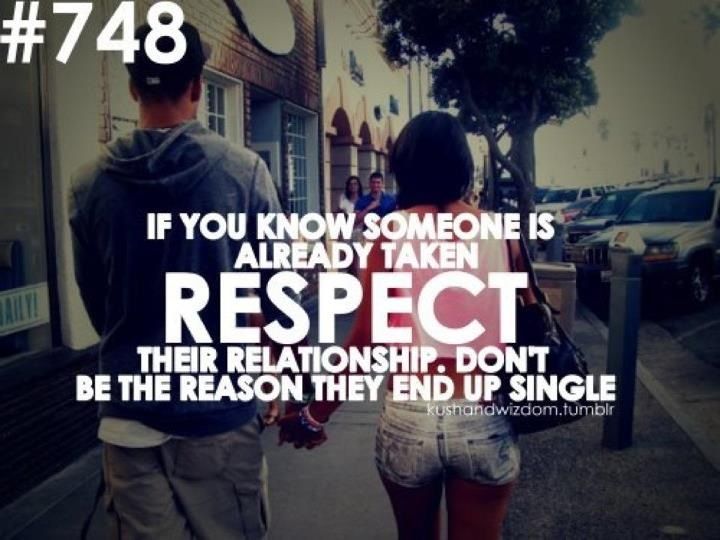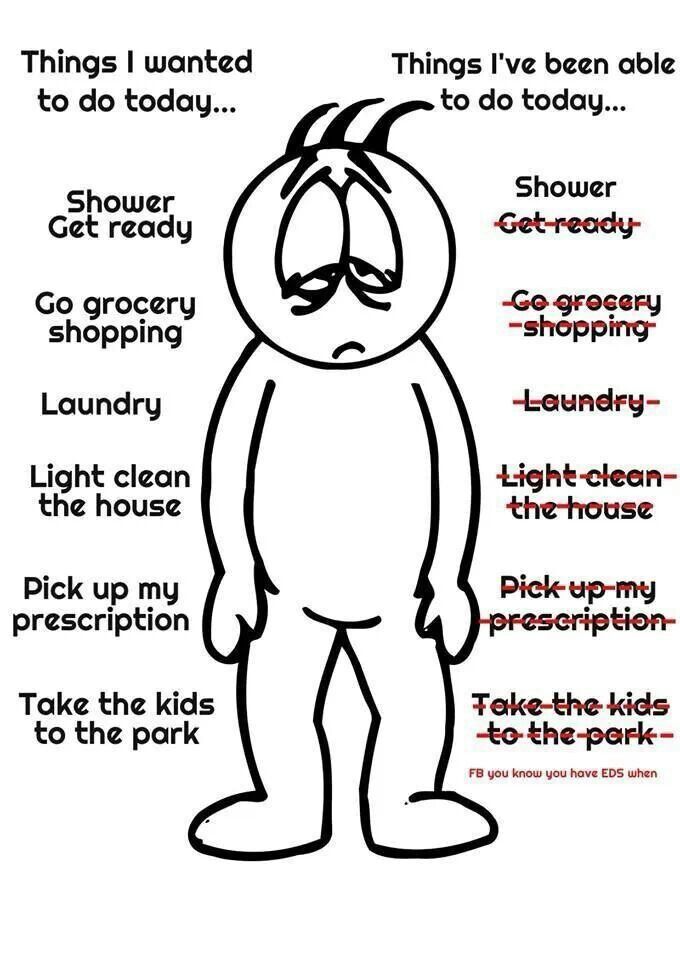How to deal with people who put you down
How to deal with People Who Always Try to Put You Down
Being around negative people is not pleasant. Sometimes, however, we can’t avoid interactions with those who will put us down or look down on us, constantly trying to minimize our accomplishments or undermining our identities. When we can’t really cut contact, for instance, when they are coworkers at an overall good workplace or family members who pop up from time to time, we need to find healthier ways of dealing with these people.
You don’t need approval, you don’t need permission
Once you are an adult, you have the power to make your own decisions. Even if others disapprove or don’t want you to do something, it doesn’t mean you shouldn’t do it. Your own judgment is paramount to anything that affects you, that you choose to do.
Don’t allow other people’s opinions to sway you when you are sure, especially if they are known for their negativity. You know best what you can and cannot do. This is especially true when the decision affects you – what you will study or where you will work, who you will date, what you will try to do is your concern, and you have the right to choose it.
Even if it proves a mistake later, unless you are hurting someone or yourself, you don’t need to wait for your choices to be approved or permitted before you go ahead. Those who are consistently negative don’t get to have veto power on what you choose to do or avoid.
Ignore their opinions
Not all opinions are made equal. The opinion of a person with a negative view of who you are or what you do is probably not very useful or very practical. So you should just ignore it.
Someone who is trying to put you down does not usually have your best interests at heart. Even if they do, they will not have an objective view of who you are, so their opinion might not bear a lot of weight. If you receive a negative comment, it’s up to you whether to take it, especially if it concerns your abilities or who you are. You don’t have to take their unsolicited opinion.
Prove them wrong
Sometimes, you might need to prove the person wrong, if they are a gatekeeper for something you want, like a professional project.
Find ways to show them what you can do and work hard, documenting every step so that you can show them everything that was accomplished. In other cases, the negative opinion can fuel your own resolve. Imagine this as a source of motivation to keep working towards your goal and show that the person putting you down was completely wrong.
Minimize contact
Sometimes, the negativity just gets to be too much, and it’s fair to reduce the amount of interaction you have. If you can, cut down contact and avoid seeing the person. If you still have to see them, you can cut down on negativity by not offering them information. Give ambiguous or vague answers, and don’t volunteer any news about what you are doing or choosing.
If they ask, you might say something vague, like “Oh, just here and there” or “Just up to the usual.” Without this input, the person is less likely to offer their comments or opinions and, if they do, they are much less likely to hit close to home.
Ask the person for advice
Negativity is not always bad. Just because something is unpleasant doesn’t mean it’s not also true. A negative person can be a resource when you want to hear all about the downsides of a situation.
Just because something is unpleasant doesn’t mean it’s not also true. A negative person can be a resource when you want to hear all about the downsides of a situation.
If you are unsure or can’t easily see them, you might explicitly ask the person to point them out or ask them for advice, counting on their usual way of addressing the situation. This can help you look for another way of viewing the situation and recognize some risks that you might not have noticed before.
Confront the person
Negativity can be an unconscious habit. If you value the relationship you have with a person, you might confront them and talk about how they make you feel. Focus on your emotions and bring examples of the negativity that bothers you.
Some people tend to focus on the downsides by nature, so they might not mean to bring you down. Talk to them and see whether they will be open to cutting down on their comments. It can be an enlightening conversation for both of you and might even lead to some real change.
13 Reasons Why People Put Others Down (+ How To Deal With Them)
Disclosure: this page contains affiliate links to select partners. We receive a commission should you choose to make a purchase after clicking on them.
Some people like to have a little dig at others whenever they can.
They belittle them, they make fun of them, and they put them down.
If you are on the receiving end of this type of behavior, it can really hurt your feelings.
So, you may be wondering, why do they do it?
What makes people put others down?
And when it happens, what’s the best way of dealing with it? How should you respond?
That’s what we’ll explore in this article.
Let’s start with the reasons…
Speak to an accredited and experienced therapist if someone is putting you down and it’s affecting your mental health. You may want to try speaking to one via BetterHelp.com for quality care at its most convenient.
13 Reasons Why People Put Others Down
1.
 To make themselves feel better.
To make themselves feel better.As backwards as it may sound, these people feel better about themselves by making others feel worse.
They will typically have low self-esteem, and their misguided way of boosting it is to take aim at another person.
Even though they, themselves, are insecure, a common technique they’ll use is to pinpoint the insecurities of others.
Their ego will get temporary relief from its own pain by inflicting hurt upon someone else.
Of course, this relief does not last long, and so the perpetrator is always on the lookout for ways to put people down.
2. They are jealous.
Given their low self-esteem, it aggrieves them to see someone else doing well, in any sense of the word.
Their jealousy causes them to lash out. Their aim is to bring the other person down to their level by belittling their successes or happiness.
Yes, it’s spiteful, but it’s the only way they know how to approach those people who have what they want.
The underlying message is: “If I can’t feel good about myself, neither can you.”
3. To make themselves feel important.
Nobody likes to feel small or insignificant. But some people use put downs to give themselves greater importance.
This is often as part of a group or in a hierarchy where they believe that attacking someone else gives their own standing a boost.
What these people don’t realize is that, whilst this approach might work to a small extent in some cut-throat business arenas, it often has the opposite effect in general life.
4. To make other people like them.
Making someone the butt of a well-considered joke amongst a group of friends can make everyone laugh.
However, some people take this approach in other situations, thinking that it will help others feel more positively toward them.
It won’t.
These people really care what others think of them, but even if they generate some smiles or chuckles at the expense of their victim, the underlying feeling will often be that of awkwardness.
5. To get attention.
Some people feel a little lost when people aren’t paying attention to them. And so they make fun of others in order to get the attention they desire.
Despite the previous point, it’s not unusual for attention-seekers to be almost as happy with negative attention as they are with positive attention.
Any attention makes them feel noticed and gives people a reason to interact with them.
6. To feel in control.
Putting someone else down provides a level of control, and this can make it extremely tempting.
Some people have grown up feeling very little control over their lives, often due to childhood difficulties or trauma.
Many bullies, for instance, either have been or are being bullied themselves and so to get that sense of control back, they “punch down” to someone they perceive as weaker.
7. They are using displacement as a defense mechanism.
The bully in the previous point is an example of someone using the psychological strategy of displacement to deal with their negative emotions.
Essentially, displacement involves taking a hostile emotion from one situation and transferring it to another.
A person may, for example, take their stress, anxiety, or anger from one part of their life and find an outlet for it by knocking others down.
This is an unhealthy and destructive way to deal with one’s own difficult feelings.
8. To weaken the resolve of another person with a view to manipulating them.
This could be the malignant narcissist who simply wants to destroy his victim’s self-esteem in order to control them.
It could also be a person seeking to guilt trip someone into doing what they want them to do.
Putting others down and belittling them can weaken their self-belief and assertiveness, making them easier to influence.
9. They have a negative outlook on life.
Some people seem to live with crippling negativity that affects the way they view everything they come in contact with.
They are, pessimistic, cynical, and utterly disparaging of anyone else’s positivity.
Putting others down is almost second nature to them. It’s an automatic response to anything remotely cheerful.
If you share good news with such a person or seek some words of encouragement, you are likely to receive the polar opposite.
10. They have low social and emotional intelligence.
Some people struggle to grasp many social norms. They do things that most others simply know not to do.
Neither do they have the emotional intelligence to understand that their actions directly affect how other people feel.
Mocking, making fun, and putting others down is something they do because they don’t receive the usual alarms in their mind that tell them what they are doing is not okay.
Often they can’t understand why the target of their mockery is so offended.
11. They fall foul of stereotypes.
They might allow their preconceived notions of who a person is to taint their behavior toward them.
For example, a person who relies on state welfare handouts to get by might be judged, by some, as being lazy, unintelligent, and lacking in ambition.
It doesn’t matter how far from the truth these things are, some people might express such unkind thoughts openly.
12. They are unwilling to listen to an opposing point of view.
When a person holds a particularly strong stance on a topic, they are unlikely to be open to different points of view.
Some people can handle such disagreements in a mature manner, but others will seek to tear down the views and opinions that go against their own.
This can lead to attacks on the views themselves and put downs of the person who holds them.
Phrases such as, “You’re so naive,” “You don’t know what you’re talking about,” and “I can’t believe you really think that,” are all forms of belittling.
13. They don’t know how to communicate properly.
Some people may resort to making fun of others because they don’t know how to effectively communicate their true thoughts and feelings.
They either feel unable to express themselves, or they simply cannot find the right words to say what they want to say.
So, to avoid having to try, they use mockery and put downs as a means of distraction and to prevent any heartfelt conversations from taking place.
How To Deal With People Who Put You Down
We really do recommend that you seek professional help from one of the therapists at BetterHelp.com as professional therapy can be highly effective in helping you to deal with the effect of the put downs on your mental health and the person saying them.
Now that you know why someone might choose to belittle you, make fun of you, or put you down, what should you do about it?
There are two parts to this. First of all, let’s focus on the internal work you ought to do at this point.
1. Realize that their comments reflect on them, NOT you.
It’s not easy to hear mean words said about you and not be impacted by them in your heart and mind.
At first, the best you can do is to not take their comments personally.
Whatever they say, it’s a reflection of their own insecurities, their own troubles, their own past, and their own warped mindset.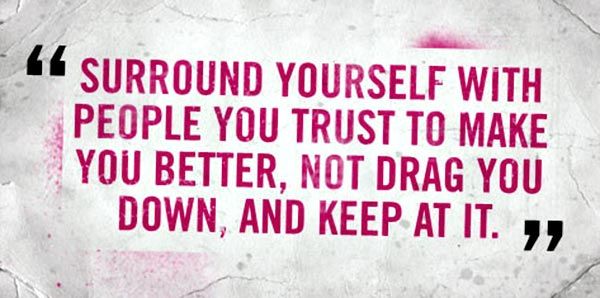
They have expressed a view – perhaps one they don’t even truly believe – for one reason or another, but it is just their view, nothing more.
Remember your power: the power to consciously choose how you react emotionally.
You don’t have to let it affect you.
It is difficult… it really is. BUT, with time and practice, you can reach a point where the spiteful words of others don’t affect you.
2. Consider the counter-evidence.
One of the things you can practice to help you deal with put downs is to take what the other person has said and come up with all of the reasons you can think of as to why it is untrue.
You do this in your mind, and not out loud to the other person.
This reminds you to focus on your positivity, and not their negativity.
It says, “I hear you; I just don’t agree with you.”
Any difficult emotions that have arisen due to the comments can be challenged and turned on their head when you realize that you know the real truth.
Eventually, your mind will be able to counter the negative comments in real-time so that you can bat them away without ever having let them permeate your mind.
3. Put things firmly in perspective.
You have a heck of a lot to celebrate in your life…
…people who care about you and believe in you.
…things you have worked hard at and achieved.
…pastimes you enjoy doing.
…moments to treasure.
The question you have to ask yourself is whether you are going to allow someone else’s unkind words to overwhelm all of these things you have to be grateful for.
As difficult as it might be to put your emotions to one side in the heat of the moment, try to reflect on how insignificant the put down really is.
It is unlikely to have any effect on your life outside of what you allow.
Sure, if a person repeatedly puts you down, it will certainly affect your relationship with them, but you have control over this.
You might choose to not have that person in your life anymore, for instance.
But their words don’t hold any power over you by themselves.
4. Ask whether there was anything constructive in the put down.
Some people are quite rash with their choice of words. They may express themselves in ways that don’t quite reflect their underlying thoughts or opinions.
Without realizing it, they say something insulting, when they meant to say something constructive.
Whilst nine times out of ten this won’t be the case, it’s good to be on the lookout for that one time when what they said was meant in a different way.
You don’t have to let them off the hook entirely if this is the case, but you can take on board the constructive message underlying the poorly chosen words.
5. Don’t attack them in return.
Let’s now turn our attention to how you should actually respond to the person who has belittled you or made fun of you.
The first and most important point to take on board is to never fight fire with fire.
In other words, don’t be tempted to use a put down of your own to hurt them like they hurt you.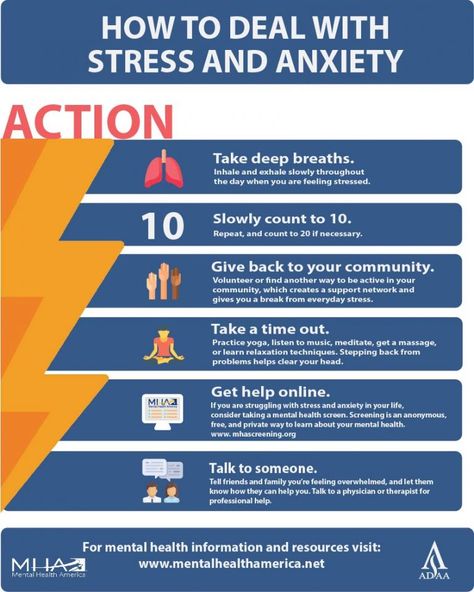
Remember, an eye for an eye leaves the whole world blind.
So, what should you do instead?
Well, as hard as it might be, one way of breaking free from the effects of the put down is to empathize with the person who said it.
Keep the previous section in mind and consider that, in many cases, they are saying hurtful words from their own position of pain and/or misery.
They are wounded and are lashing out to try to find some comfort.
This doesn’t mean you have to allow this sort of behavior to continue unchecked, but it does allow you to approach the situation from a calmer and more diplomatic position.
6. Laugh it off.
A good way to respond to a put down is to simply laugh at it.
The person who said it will likely be confused by this response, but by showing how little it affected you, you might persuade them to think twice about doing it again.
If you’re in a group of people, it also gives you a position of strength because self-deprecating humor can make other people warm to you, and not to the perpetrator.
7. Say thank you.
You might be wondering why on earth you would thank someone who has just made fun of you or belittled you in some way.
Well, just like laughter, a thank you can help to disarm the situation and put you in a good light if there are other people present.
Of course, you don’t have to just say thank you, you might say something like:
“Thank you for your opinion, but I wholeheartedly disagree.”
“Thank you for such high praise!” (Said with a sarcastic and ironic tone.)
“Thank you. I look forward to proving you wrong.” (When someone has cast doubts on your ability or likely success.)
8. Tell them how it makes you feel.
Only take this approach if the person who put you down is someone you care about and who cares about you – a good friend, a family member (one who you have a good relationship with), a partner.
In relationships like these, you should feel able to be honest about how the other person has made you feel.
Perhaps something was said in the heat of the moment when tempers were raised.
Or maybe they thought they were being funny and didn’t realize how their words would affect you.
Or perhaps, as hinted at above, they were trying to give you some honest, but hard to hear, advice and it simply came out wrong.
Whatever the situation, responding with, “Perhaps you didn’t intend it to be, but what you just said was quite hurtful,” can make them stop and consider their actions.
Many times, you’ll find the other person to be quite apologetic.
It is best to say this straight away if you can, because it avoids the whole, “I don’t remember saying that” saga if you bring it up at a later date.
9. Exit the situation.
If you don’t think being honest is the right approach, or the person is not someone close to you, you could always choose to walk away from them.
You don’t have to be rude about it. You can just say, “Well, I’ve got to go and do X,” or “On that note, I think it’s best I go now.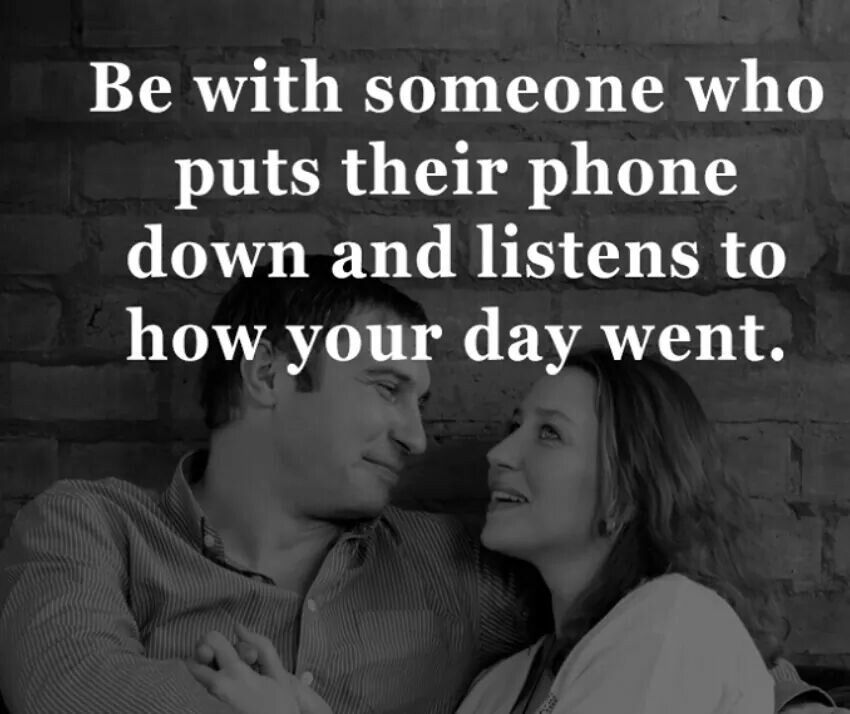 ”
”
If you are with a group of people and you don’t want to leave entirely, you could just disappear for a few minutes to let the conversation move on to something else.
Maybe use the time to go to the toilet, get some fresh air, order some food or drink, or make a quick phone call.
Then come back and rejoin the group once you’ve had a chance to process the put down and get your emotions in check.
10. Say goodbye to repeat offenders.
If a person often puts you down or makes fun of you, you might wish to get rid of them from your life.
Not all friends are really your friends. Not all family members deserve your time and attention. Not all co-workers require a friendship outside of work. And not all partners are meant to be.
Even if you are unable to say goodbye completely, you can look to minimize the interaction you have with this person.
You can keep things to basic pleasantries and refuse to engage in anything more than is required.
11.
 Be prepared to defend others who suffer a put down.
Be prepared to defend others who suffer a put down.If you know how bad it can feel to be on the receiving end of a put down, it pays to step in when someone else is targeted.
You can defend them, state your disagreement with the perpetrator, and make it clear to all those involved that that sort of behavior is not acceptable.
Not only can this convince the individual amongst a group of friends or co-workers to think twice before saying something similar in future, it can encourage others to come to your defense if you are ever the target.
If you have their back, they will be more likely to have yours in return.
And always, always, always remember:
Whoever is trying to bring you down is already below you.
Is your mental health suffering as a result of someone constantly belittling you and putting you down? Talking to someone can really help you to address and fix this issue. It’s a great way to get your thoughts and your worries out of your head so you can work through them.
A therapist is often the best person you can talk to. Why? Because they are trained to help people in situations like yours. They can guide you and help you to cope with the verbal abuse and feel better about yourself.
A good place to get professional help is the website BetterHelp.com – here, you’ll be able to connect with a therapist via phone, video, or instant message.
While you may try to work through this yourself, it may be a bigger issue than self-help can address. And if it is affecting your mental well-being, relationships, or life in general, it is a significant thing that needs to be resolved.
Too many people try to muddle through and do their best to overcome issues that they never really get to grips with. If it’s at all possible in your circumstances, therapy is 100% the best way forward.
Online therapy is actually a good option for many people. It’s more convenient than in-person therapy and is more affordable in a lot of cases. And you get access to the same level of qualified and experienced professional.
Here’s that link again if you’d like to learn more about the service BetterHelp.com provide and the process of getting started.
You’ve already taken the first step just by searching for and reading this article. The worst thing you can do right now is nothing. The best thing is to speak to a therapist. The next best thing is to implement everything you’ve learned in this article by yourself. The choice is yours.
You may also like:
- How To Stand Up For Yourself And Not Be A Doormat
- Why Are Some People So Mean, Rude, And Disrespectful To Others?
- 5 Smart Ways To Handle Shallow People Who Belittle Your Life Choices
- How To Deal With Emotionally Unintelligent People
- 10 Telltale Signs Of A Bitter Person (And How To Handle One)
- 14 Signs Of Fake Friends: How To Spot One A Mile Off
How to behave if you are humiliated?
Complete collection of materials on the topic: how to behave if you are humiliated? from experts in their field.
Contents
- 1 Method No. 1. Boredom
- 2 Method #2. Ignore
- 3 Method #3. Serenity
- 4 Method No. 4. Gratitude
- 5 Method No. 5. Revelation
- 6 Method #6. Humor
- 7 Safe phrases
- 8 Video: how to respond to insults
- 9What to do if you are humiliated - advice from a psychologist
- 10 How to stop being humiliated
- 11 Husband insults and humiliates - what to do
And what is an insult in essence? Let's turn to Wikipedia.
“Insult (invective vocabulary) — intentional or negligent humiliation of the honor and dignity of another person, expressed in an indecent form, i.e., a form that contrasts with the norms accepted in the society in which the act is performed. Insult can be inflicted verbally, in writing, by action, publicly, both in the presence and in the absence of the victim. When insulting, information disgracing the victim is not reported, but a negative assessment of his personality in a rude form is given.

Knowing the enemy by sight makes it easier to fight. Is it necessary? I have long developed for myself a certain tactic of responding (or rather, NOT responding) to insults. When a person deliberately wants to offend you, ask yourself the question: WHY? Why is he doing this? Wants to humiliate you in order to exalt himself? Then his act causes compassion. This is the only way a person can assert himself. Or he wants to hurt your nerves to piss you off. For what? He is looking for a lightning rod in you, he wants to drain his irritation somewhere.
Always think why? And only after you understand the root cause, and choose your behavior model. After all, we cannot be offended, we can only be offended. Sami.
Leo Nikolayevich Tolstoy also said:
It's all about thoughts. Thought is the beginning of everything. And thoughts can be controlled. And therefore the main thing of perfection is to work on thoughts.
I. E. Repin, “Tolstoy dressed in peasant clothes”, fragment
E. Repin, “Tolstoy dressed in peasant clothes”, fragment
Photo: en.wikipedia.org
If you immediately start reacting thoughtlessly after an insult, your offender will celebrate victory. For what? Why give him such an opportunity! How do we respond to insults? "Fool" - "The fool himself." A familiar picture? When you see this from the outside, you understand that both of them are the most stupid people. One, due to the lack of upbringing and endurance, allowed himself such a thing, and the second, having tuned in to his destructive wave, accepted the conditions of this “game”. Both are worthy of compassion.
Sometimes we get abuse so unexpectedly that we don't even have time to react positively. Offensive words hurt painfully, sharp needles enter the very heart. We do not find what to say in the first minute, but "after the fight" we come up with a plan for revenge.
Now stop and look at the situation as if from the outside. Silly and funny. Wit on the stairs. What are we spending our precious lives on? A person has long forgotten about his attack, and you are carefully and scrupulously cultivating the seeds of revenge in your soul. And they are very systematically destroying you from the inside. For what?
What are we spending our precious lives on? A person has long forgotten about his attack, and you are carefully and scrupulously cultivating the seeds of revenge in your soul. And they are very systematically destroying you from the inside. For what?
Sometimes we get insulted unexpectedly, we don't have time to react positively, and we start thinking about revenge plans
Photo: Piotr Marcinski, shutterstock.com
If, nevertheless, you understand that it is you who is the master of your thoughts, and not vice versa, stop and imagine the whole situation from space. Are you crying now? Are you offended? And how would it look on a cosmic scale? Negligibly small and not worth your nerves. It even becomes funny - because of such a trifle there are so many experiences. Have you calmed down? And now go to the window and carefully, to the smallest lines, examine some object outside the window. You switched your attention, took a deep breath and . .. you felt better. At first, it will not be easy to get rid of destructive thoughts, and resentment will remind of itself from time to time. STOP! Stop the flow of sad thoughts. Sip delicious tea with lemon and honey. Watch a comedy. Play with pets. Switch to a positive wave.
.. you felt better. At first, it will not be easy to get rid of destructive thoughts, and resentment will remind of itself from time to time. STOP! Stop the flow of sad thoughts. Sip delicious tea with lemon and honey. Watch a comedy. Play with pets. Switch to a positive wave.
How can you continue to build your relationship with the offender? If this is your friend and there is something to appreciate and love him for - be sure to talk calmly, dot the "i" and openly tell him that his attack upset you very much. Speak up the situation. Believe me, it will be easier for you and for him. If this is your boss and you still have to communicate with him, here you will have to develop a certain tactic of behavior. Here are some helpful tips.
I have already written about how I reacted to the tyrant boss, who turned rudeness towards employees into the daily practice of communicating with the team. At first, she reacted very violently, because. I have never experienced anything like this in my life and I was categorically against such communication.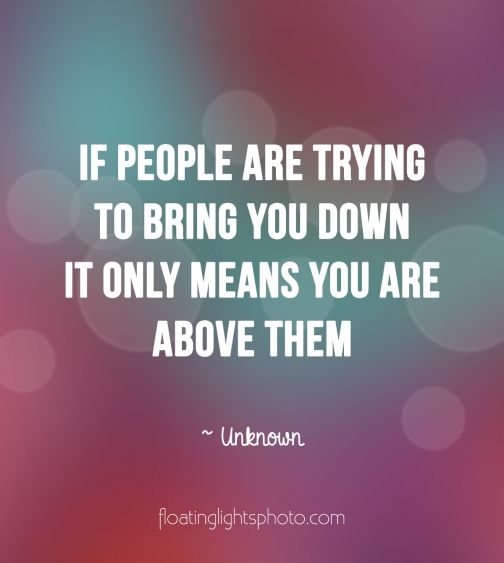 The corporation had a full-time psychologist. It was she who advised me to present him every time as a small, capricious child who constantly cries and fights. He needs to be calmed down and patted on the head. Plant in a pot and feed with porridge. That's how I started doing it. The effect is amazing! As soon as I saw his jeep on the horizon, I began to imagine this whole picture. The smile did not leave his lips. There was so much self-confidence. But the most interesting thing is that our boss became afraid of me. He saw my psychological advantage and did not know how to deal with me.
The corporation had a full-time psychologist. It was she who advised me to present him every time as a small, capricious child who constantly cries and fights. He needs to be calmed down and patted on the head. Plant in a pot and feed with porridge. That's how I started doing it. The effect is amazing! As soon as I saw his jeep on the horizon, I began to imagine this whole picture. The smile did not leave his lips. There was so much self-confidence. But the most interesting thing is that our boss became afraid of me. He saw my psychological advantage and did not know how to deal with me.
Make your boss look stupid with a wreath on his head and it will be easier to react to his attacks
Photo: Debu55y/Shutterstock.com
Much later, I “worked out” such a technique from the psychology of communication with him. It's called Aquarium. When our boss gathered everyone for a meeting and started screaming and insulting from half a turn, I immediately imagined him in an aquarium, like a fish that opens its mouth, but you can’t hear the words. She put on such a protective shell. And his words, like balls, bounced off me, not reaching the goal. Perhaps I was the only one of the entire department who could keep a sober mind after such unfortunate meetings. Everyone else was knocked out for the rest of the day.
She put on such a protective shell. And his words, like balls, bounced off me, not reaching the goal. Perhaps I was the only one of the entire department who could keep a sober mind after such unfortunate meetings. Everyone else was knocked out for the rest of the day.
“A gentle answer removes malice; hurtful words arouse anger.” John Ruskin.
Also a good reception. Only it requires a certain hardening, endurance. Respond politely to malicious insults. Or, in extreme cases, say calmly: "How rude and rude you are." Sometimes this acts like a tub of cold water on the offender. In any case, you get a pause and will be able to retreat from the battlefield with your head held high.
The most unfortunate, in my opinion, reaction method is to shout all sorts of nonsense in response. Of course, in this way you become a twin brother and slide down to the level of this ill-mannered type. But sometimes it helps relieve stress. Especially if you took two octaves higher.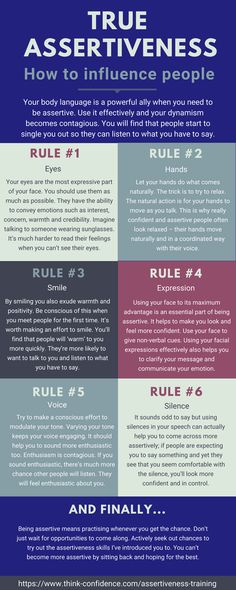
It is much better to receive a splash of negative emotions into the water. Open the faucet and just scream everything that has boiled into the stream of water. How well it helps. Wash your face with cool water and go get positive emotions. The conflict is over. You are smarter! Give yourself five and try to draw healthy conclusions from this situation.
The man showed his true face. Can you remake it? Thankless work. Either you accept him the way he is, or that's the end of your relationship. The choice is always yours! The main thing is not to stoop to the role of a victim. Have a nice day and conflict-free contacts!
What else to read on the topic?
How to respond to an insult?
Encodes. How to answer with dignity in any situation? What to do if you are rude on the Web?
There are many aggressive people in today's society, because the frantic pace of life leaves its mark on mood, behavior and interpersonal communication. At a certain period of life, people collide with each other, so avoiding conflicts is quite difficult. Sooner or later you will find yourself in the line of fire with a person who throws insults. At such moments, you must fight back against your opponent. Some start a skirmish, others react calmly. Consider all the methods in order.
Sooner or later you will find yourself in the line of fire with a person who throws insults. At such moments, you must fight back against your opponent. Some start a skirmish, others react calmly. Consider all the methods in order.
Method #1. Boring
- The boring technique is quite common among intelligent people. If you are mentally superior to your opponents, consider this option. If the interlocutor is trying to offend you, give him an analogy from the scientific literature.
- For example, you were reproached for the mess on your desktop, as if you had evolved from a pig. Get your bearings in time and answer: “Darwin has repeatedly proved the fact that pigs do not belong to humans in any way. They do not work at a desk, therefore, they cannot create a mess in the workplace. Read the book to make more precise arguments in the future!
- In addition to the fact that the fact will hurt the offender, the opponent will be confused. You will have enough time to plan further dialogue.
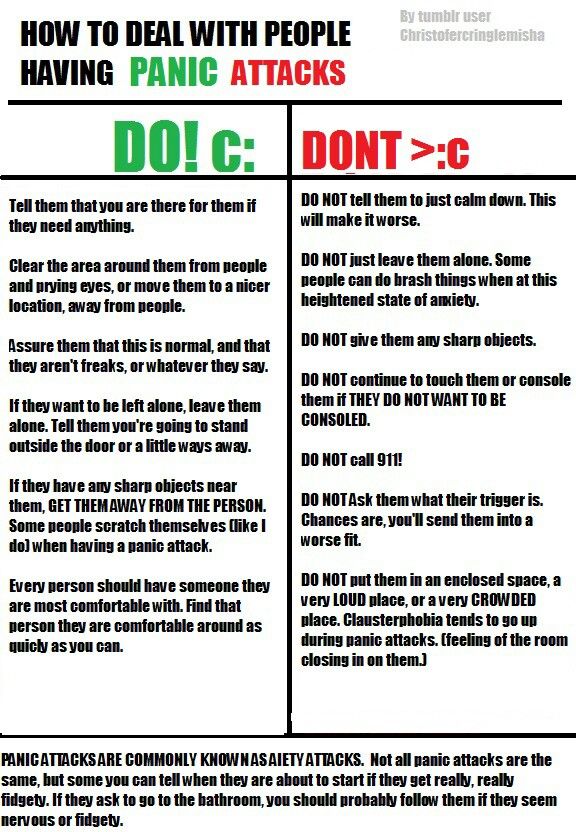 Not many people have scientific knowledge, such a move will put the boor in an awkward position.
Not many people have scientific knowledge, such a move will put the boor in an awkward position.
how to take life easier
Method #2. Ignoring
- Not every person can gather his will into a fist and turn on the ignoring mode, moreover, such behavior is not always appropriate. However, there are often cases when this tactic will come in handy.
- If the insult is petty, a grin is the best option. Smile with one corner of your lips, thinking to yourself how much better the world would be without fools. If a person is narrow-minded, and also sinks to low insults, demonstrate contempt.
- Do not hold back your positive attitude. You can laugh in your opponent's face without responding with words. Make it clear that rudeness does not hurt you at all, even if the situation is different.
- The tactic of ignoring is to prove to the opponent that he is stupid. It is possible that he will become even more furious when he sees your reaction.
 Namely, that his words not only do not disturb, but also amuse you.
Namely, that his words not only do not disturb, but also amuse you. - If the person is sane, you can accompany the grin with a polite phrase. For example, “It seemed to me or did you have a bad day?”. If a person belongs to the category of boors, your attack will cause even more discontent.
- Unfortunately, the modern world is degrading, so it is important to use the ignoring technique correctly. She is suitable for a skirmish with ill-mannered people who do not watch their language.
- Never try to justify yourself if you see that the insult is inappropriate. Again, it's best to ignore the attacker by smiling slyly in response. Do not cross into the territory of the offender, such a move will be obviously losing.
how to become a positive and cheerful person
Method #3. Calmness
- The previous options, namely "Ignore" and "Nerd", refer to sarcastic ways. You suppress the offender through malice, some kind of mockery. And this method differs in that you need to respond to insults in a calm tone.
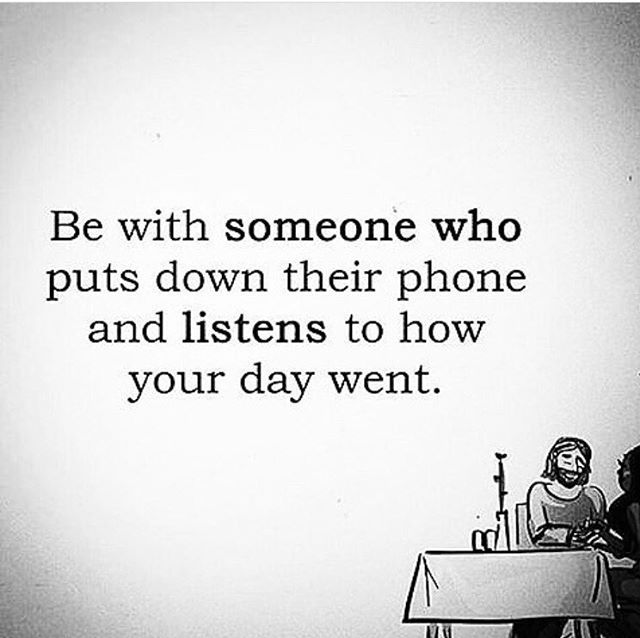
- Do not swear, use swear words or raise your voice a few tones. Answer with a slight smile, be friendly. Ask what exactly does not suit your interlocutor. Try to sort out the situation "on the shelves."
- Such behavior shocks the opponent, some begin to feel embarrassed. A conflict situation often ends with an apology from the offender. This option will not allow the scandal to turn into a disaster.
- If you have peace of mind and want to maintain harmony in your heart, do not respond with evil to an insult. When this is hard to achieve, take 5 deep breaths and the same number of exhalations, and then proceed to further dialogue.
Method number 4. Gratitude
- Gratitude technique is also called "Aikido". Of course, experienced professionals do not advise to engage in assault. The technique consists in transferring aggression from the opponent to him.
- The option is suitable for people who are offended in the presence of colleagues or other large crowds.
 In such situations, it is important to defend your honor, but it must be done correctly.
In such situations, it is important to defend your honor, but it must be done correctly. - Tell the interlocutor that you are extremely grateful to him. For what? For the fact that he spent a lot of time listing your shortcomings. Also clarify that you would not do this because you do not care about him.
- It is important that the answers do not contain sarcasm. The main thing is to be serious and calm, as if you casually paid attention to the offender. By demonstrating fortitude, you will emerge victorious from the skirmish, while saving face.
- End the speech with another thank you. Inform that in the evening you will think about your own shortcomings and try to correct them in the near future. As practice shows, such an answer misleads boors. In this case, all the "spectators of the show" will take your side, definitely.
how to learn to think positively
Method #5. Revelation
- In most cases, insults in the family circle or among close friends can be eliminated in time if you bring the opponent to a frank dialogue.
 It is important to step over your pride and stop resisting, after proceeding to manipulation.
It is important to step over your pride and stop resisting, after proceeding to manipulation. - Tell your loved one that you don't like hearing this kind of complaint. Try to find out what they are backed by. If the arguments are truthful enough, listen and draw your own conclusions.
- If you are in pain, let me know. As a rule, most situations are resolved peacefully. If people are dear to each other, they will be able to find a solution to any problem.
- If it is, again, about relatives or friends, try to forgive the offender in advance. You yourself understand that irritation and indignation do not appear out of nowhere. Since the person is dear to you, try to understand and forgive him.
Method #6. Humor
- Positive is the head of everything! The recommendation is especially relevant in cases with poorly educated or close people. A good joke or a positive reaction to an insult will smooth out the rough edges.
- To defuse the atmosphere, you need to have a sense of humor.
 When you repel attacks in this way, the interlocutor will become confused. His concentration will be broken as the insults take a different turn.
When you repel attacks in this way, the interlocutor will become confused. His concentration will be broken as the insults take a different turn. - Further development of the scandal will become inappropriate after both laugh at the joke. It is important to reflect the negative in time so that it does not grow into something more.
- Of course, not in all situations you need to laugh it off. For example, if you were insulted on your way to work (in traffic or on public transport), the best option would be to keep your distance. Move away from the offender, making it clear that his company is unpleasant for you.
how to learn to communicate with people
Win-win phrases
There are many phrases that will help you get out of a conflict situation as a winner. You can remember those that you like, and then apply them for their intended purpose.
- "Excuse me, are you done?"
- "What a pity, I thought you were a man with brains!"
- “I can say for sure that the image of a boor does not suit you! Although…”
- “Dear, please slow down.
 I am not your wife (brother, matchmaker)"
I am not your wife (brother, matchmaker)" - "From your tone it can be understood that you have misled the coast..."
- "By your behavior do you want to achieve the truth or a flattering answer?"
- "Why would an educated person put his minuses on public display?"
- "Don't worry about me so much..."
- "By getting personal, are you trying to compensate for your lack of intelligence?"
- “Thank you for your interest in my person and life in particular. Your call is very important to us…”
- “Why are you trying to offend me? Are you an energy vampire?
- "Beautiful weather, isn't it?"
There are basic tricks that will allow you to save face and adequately respond to insults. The most common options are boring, positive, ignoring, calm, gratitude and revelation. You will also need universal phrases that can be used in controversial situations.
how to learn to control your anger and aggression
Video: how to respond to insults
Humiliation is a serious blow to a person's well-being and self-esteem. Are you tired of enduring bad attitudes at work or in the family? Can you say about yourself “I am humiliated”? Many of us succumb to such manipulation, but if you are serious about stopping it, you need to start acting decisively. How to stop being humiliated and raise self-respect for yourself? A few tips from a psychologist will help you with this.
Are you tired of enduring bad attitudes at work or in the family? Can you say about yourself “I am humiliated”? Many of us succumb to such manipulation, but if you are serious about stopping it, you need to start acting decisively. How to stop being humiliated and raise self-respect for yourself? A few tips from a psychologist will help you with this.
What to do if you are humiliated - advice from a psychologist
Many have faced in their lives the problem of humiliation of misunderstanding on the part of others. Basically, this phenomenon is common in the children's team. Sometimes it is reflected in adult life.
First of all, it must be remembered that insults are not informational in nature. You are not really what they want you to be. When you are humiliated, they just want to convey aggressive bad energy to you and provide you with a bad mood.
Let's take a closer look at the question: what to do if you are humiliated. First of all, remember that the goal of the aggressor is to knock the ground out from under your feet, to put you in a state of confusion, to anger, to violate the integrity of your mental state.
Do not give in to provocation, do not show that you are tired of it. In no case should you cry in front of the offender, become hysterical and “psycho”. By showing such signs, you will let the abuser know that he was able to achieve his goal.
Do some introspection
Write down on paper a list of your positive and negative qualities. It is advisable to replenish the list regularly as they appear. Consider each item (especially the negative traits) and observe in what situations they are expressed. What's stopping you from getting rid of them? What provokes?
You can also ask relatives and friends to analyze your behavior. Let them point out the features that need to be corrected. Now, understanding what is the main problem, it will be easier to deal with it. Weakness, shyness, fear of communication and even kindness are the reasons that you are humiliated.
Understand yourself whether such a game suits you or not, and then you can draw conclusions about what to do if you are humiliated. You can always find a way out. You just need to watch the offender a little, find his weak points. Let's highlight a number of ways to get out of a conflict situation: the most correct way would be to leave, citing urgent matters.
You can always find a way out. You just need to watch the offender a little, find his weak points. Let's highlight a number of ways to get out of a conflict situation: the most correct way would be to leave, citing urgent matters.
Don't forget to make your face look businesslike and hide your offense. If you succumb to a provocation and, in response, also begin to humiliate the offender, then you are a loser and you have been hooked to the quick.
Get out of a conflict situation calmly, with a proud independent look. It is best to say that you will answer all your questions tomorrow. Return to the conversation when the person starts talking to you without threats and humiliation.
How to stop being humiliated
If ignoring does not help and if you are being humiliated, bullying continues, calmly tell the person that you will go to the police. Do not explain anything, do not threaten in response, just say that there is someone to stand up for you.
In situations where you are humiliated and this seriously interferes with your life, it makes sense to really turn to someone who can stand up for you - parents, older brothers or sisters, management, the police. As the famous character Gosha from the film “Moscow Does Not Believe in Tears” said, such people should know that for every force there is another force.
As the famous character Gosha from the film “Moscow Does Not Believe in Tears” said, such people should know that for every force there is another force.
You should not immediately refuse professional help from a psychologist if you are constantly humiliated. People prefer not to waste time and money on psychologists, but in vain. After all, success in life largely depends on the psychological attitude and the ability to manage your bad traits. Training is a good way to find friends in misfortune. In addition, they are completely anonymous.
Noticing that improvements have come, you are no longer humiliated, do not rush to relax. If you slow down - the effect is reduced to zero. Therefore, never stop, work and work on yourself again. By humiliating yourself once, you give rise to a second, and so on. It is better to develop immunity to humiliation from the very beginning.
Improve internally, but do not forget about your appearance, because modernity makes you meet exactly on it. Don't be afraid to change. A beautiful stylish hairstyle and clothes can make you a completely different person, confident in yourself and your abilities.
Don't be afraid to change. A beautiful stylish hairstyle and clothes can make you a completely different person, confident in yourself and your abilities.
Don't forget that you are not the only one with this problem! Have you seen how your colleague is being humiliated? It is necessary in a non-rude form to inform him about this. Talk to him about what you've been through. It is in this way that it will be possible to win the trust of a person, soon he will begin to listen to your recommendations.
Do not forget to be proud of yourself for all the results you have achieved. No matter what area you improve in, never stop!
Husband insults and humiliates - what to do
Hello! I need your help. I am humiliated by my husband and it seems to me that I am starting to go crazy from living in constant fear. The problem is this. We met for six months, got married, but then broke up.
The reason for the breakup of our relationship is that he wanted to lay me under his friends. I stopped in time, not allowing myself to be humiliated like that. This person is not indifferent to me, but I am not able to forgive such a thing. Plus, I know he doesn't need me.
I stopped in time, not allowing myself to be humiliated like that. This person is not indifferent to me, but I am not able to forgive such a thing. Plus, I know he doesn't need me.
But he won't leave me alone. He handed out my number to everyone he knew with the mark "girl of easy virtue", made a montage of my photos and posted them on a porn site and a dating site.
He calls me every day and keeps an eye on me no matter how many phone numbers I change. I'm really scared. Please advise what to do next. Thank you in advance. Olga Borisova.
Psychologist Elena Poryvaeva answers
Of course, you found yourself in a very unpleasant situation - it seems to be a close person, but it hurts so much ... It was a relationship where you were humiliated. And you write that you broke up six months ago.
But let me assume that your relationship is still ongoing. In the sense that they continue to humiliate you, but you endure it. For what? Living in constant fear - how much of this in your life (family, work, communication)?
Usually psychologists do not give advice, leaving the right of choice to the person. I'm breaking this tradition. If I were you, I would try to take care of myself. First, I would give him a warning.
I'm breaking this tradition. If I were you, I would try to take care of myself. First, I would give him a warning.
If this does not help, then she would contact the police - his actions are punishable. Know that you have every right (moral, civil, etc.) to defend yourself, your privacy, boundaries, dignity. The only question is why you don't use it.
© Author: Lera Tsapleva
© Photo: depositphotos.com
Author of the article:
✔ About me ✉ Feedback in response to humiliation, is the desire to fall through the ground, to dissolve in the air. When we are humiliated, we often lose any ability to act. But resorting to reckless actions is also not an option. Shouting or humiliating in response means admitting that a person managed to hurt you to the quick. What to do when they want to humiliate you - we tell you in detail.
1. Take the time to formulate a worthy answer
At the moment when they are trying to humiliate you, it is quite difficult to figure out how and what to answer, because you only dream of one thing - to disappear as soon as possible.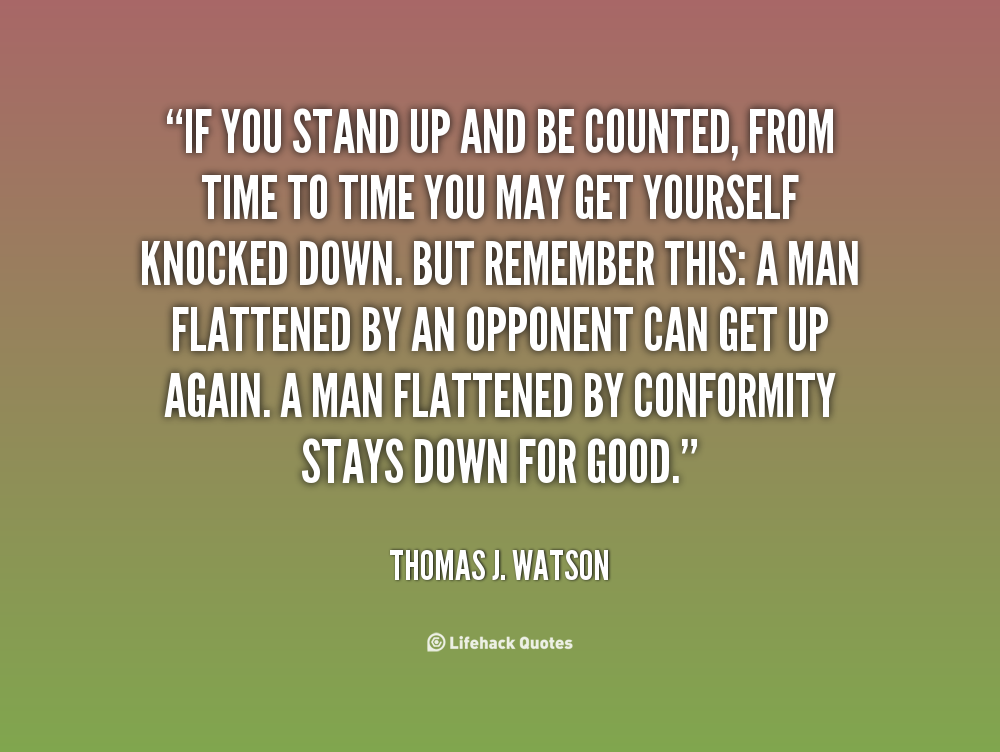 But if you force your brain to work even in such a situation, you can find a way to respond adequately. You don't need to apologize, take the blame (especially if you don't feel guilty) or attack back - such actions are likely to backfire. Just keep hitting.
But if you force your brain to work even in such a situation, you can find a way to respond adequately. You don't need to apologize, take the blame (especially if you don't feel guilty) or attack back - such actions are likely to backfire. Just keep hitting.
2. Don't take humiliation too close to your heart
First, stop thinking about yourself and your feelings of shame and try to think about what could have made a person say such humiliating things to you. Look at your "offender" with incomprehension and surprise, if necessary. He may try to humiliate you even more, but your reaction will let him know that you did not expect such an attitude. Sometimes a person who says humiliating things to you does not do it on purpose, and then, having seen your reaction, he will be able to stop in time and realize that he needs to apologize to you. Perhaps now he himself will feel ashamed.
If they try to humiliate you in front of other people (your family, friends or colleagues), the best way out of the situation is to ask directly. You can ask your abuser, “Can you give me 5 minutes alone?” Then, having met with him without prying eyes, you can clarify the situation and hear criticism addressed to you. Without the pressure of other people, it will be easier for you to navigate your further actions.
You can ask your abuser, “Can you give me 5 minutes alone?” Then, having met with him without prying eyes, you can clarify the situation and hear criticism addressed to you. Without the pressure of other people, it will be easier for you to navigate your further actions.
And here's what you need to remember: when someone tries to make you feel humiliated, it's more likely that person has a problem, not you. It just becomes much easier for him when he is engaged in the humiliation of others.
8 ways to get through difficult times
3. Try to understand the person's motives
Once you end (or break off) a conversation that may end unpleasantly for you, you will have a great opportunity to think about what is happening. This does not mean that you should forgive the offender or be nice to the one who humiliated you. This is an ordinary tool so that you can understand the hidden motives of a person’s behavior and realize that it’s not about you at all, but about him.
He may be angry with you because you shamed him in some way or said something hurtful. It may be such a trifle that you can hardly remember, but in the eyes of a person it turns into a serious insult.
Another option: your offender is trying to assert himself at your expense. But you should know that at the moment of humiliation, the aggressor actually experiences a feeling of powerlessness.
4. Try to get out of the situation
Psychologists say that you have about 20 minutes to change the direction of the dialogue when it starts to get negative emotional intensity. As soon as this time is over, both you and your interlocutor will be able to switch to something else only by ending the conversation. So do not dwell on the negative, but try to distance yourself. You can say, "I'm not ready to discuss this right now" or "I'm sorry you get this reaction. We'll discuss later."
5. Be careful about retaliation
Retribution may seem like a great way to restore your honor, but it really isn't. Someone who is inclined to humiliate others in order to feel their greatness and power is likely to respond to you even more cruelly. Remember that not responding immediately does not show you are weak. Strength may lie in the desire to fight and stand up for another person in a similar situation.
Someone who is inclined to humiliate others in order to feel their greatness and power is likely to respond to you even more cruelly. Remember that not responding immediately does not show you are weak. Strength may lie in the desire to fight and stand up for another person in a similar situation.
So do not criticize yourself if you feel that you are not ready to openly confront the offender. It is better to take a timeout in order to think over your move and not make mistakes.
9 ways to respond to negativity in your direction
6. Do not let humiliation affect your life
It is in your power not to let the offender negatively affect your future life. By the way, this is a great way of revenge - to show that you are free from those statements that should have hurt you to the quick. Live a full life and try not to avoid the person who has become your abuser. There is a high probability that soon he himself will try to avoid you, feeling awkward.


